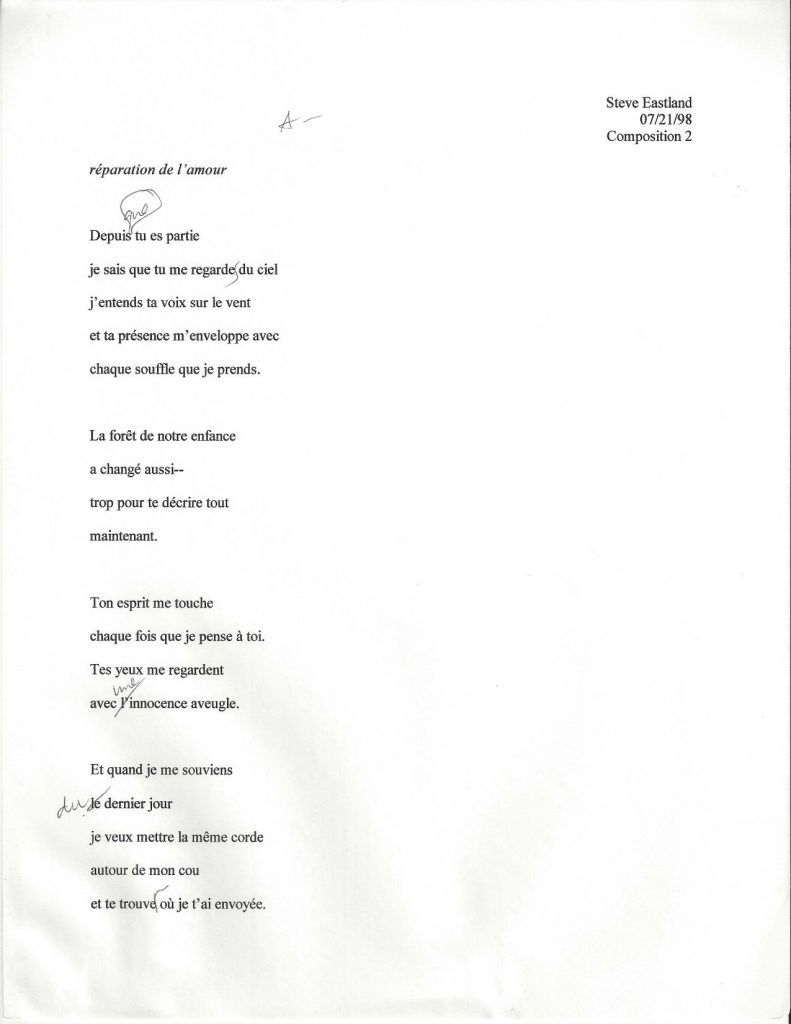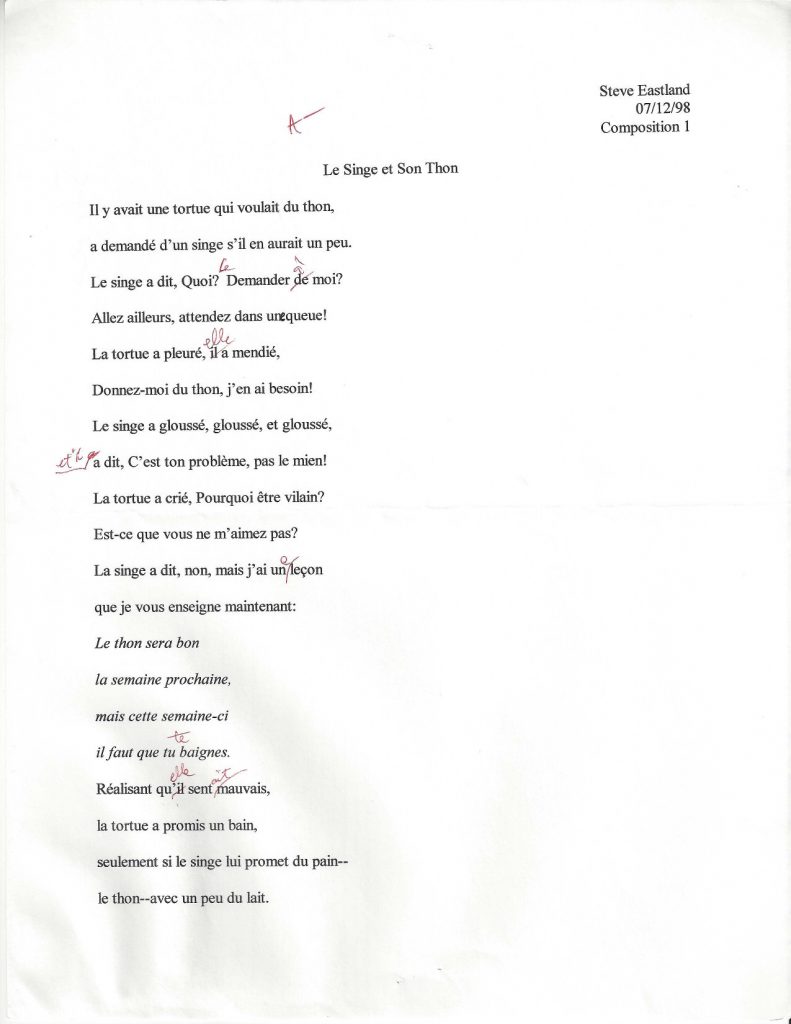The poem in question: is here.
This is the second of two poems I wrote for assignments in a BYU French class. This one is more serious in nature, but I still giggle every time I read it, because I thought I was so clever, and I’m still wise/immature enough to think I was clever. We were studying some different French poetry and themes and the assignment was to write a poem of our own using one of the themes. I remember three of the themes being love, nature, and death, and it seems there was at least one more, but I can’t for the life of me remember what it is. At any rate, I decided to try to use all the themes together, and I think the result is morbidly splendid, not to mention the foreign-language writing being not too shabby. Like the last poem, I got an A-, probably for minor grammar errors (which are corrected in this text).
This is called “réparation de l’amour” (“reparation of love”).
Depuis que tue es partie
je sais que tu me regardes du ciel
j’entends ta voix sur le vent
et ta presénce m’enveloppe avec
chaque souffle que je prends.La forêt de notre enfance
a changé aussi—
trop pour te décrire tout
maintentant.Ton esprit me touche
chaque fois que je pense à toi.
Tes yeux me regardent
avec une innocence aveugle.Et quand je me souviens
du dernier jour
je veux mettre la même corde
autour de mon cou
et te trouver où je t’ai envoyée.
And the rough English translation:
Since you left
I know that you watch me from heaven
I hear your voice on the wind
and your presence envelops me with
each breath that I take.The forest of our childhood
has changed also—
too much to describe it all
now.Your spirit touches me
each time that I think of you.
Your eyes watch me
with a blind innocence.And when I remember
the last day
I want to put the same rope
around my neck
and find you where I sent you.
Update 6/27/2016: Here is an image of the paper I originally turned in for my assignment.


Poetism Commentary: “Stormy Weather”
The poem in question: Stormy Weather
An alternative title for this poem would be “Letter to the Devil.” In LDS theology the Book of Mormon offers some insights to Satan’s workings in 2 Nephi 26:22 and 2 Nephi 28:21-23. Basically the idea is that the devil will attempt to be our friend, slowly putting a “flaxen cord” around us so we don’t realize we are under his control, until one day it’s too late, we’re bound by his “awful chains, from whence there is no deliverance,” and he gleefully abandons us and moves on to the task of ensnaring the next poor soul.
I tried to capture this idea in my poem, and I like the subtle progression the speaker makes in realizing that he is becoming more and more trapped. It starts out somewhat light-hearted: “we… played our game together,” progresses to “let’s go tonight,” and arrives at the conclusion that “we dug my grave together,” all while not quite making the full logical connection that this relationship is not a good one, because he keeps coming back to it. I think this is something that everyone struggles with on some level.
The last stanza is also based in LDS theology, but it is also a bit overly-negative by my reading today. While Mormons believe that eventually Satan will be cast down forever, the phrase “your demise will be my finest hour” seems displaced from the spirit in which the triumph will take place. That spirit is not one of boastfulness, but of relief and gratitude toward the delivering power. I don’t think I conveyed that sentiment, but I also think that I was 18 when I wrote this and overcoming Satan’s ceaseless attacks was constantly on my mind.
As for the style of this poem, I generally enjoy it. I think I did a pretty good job with the rhyming pattern, and I think the meter generally flows pretty well. Similar to something I mentioned many years ago in a different commentary, the repeated use of the line “then came stormy weather” probably had some influence from Paul Simon’s “Hearts and Bones.”